celebrity radar - gossips
Presidency: 1m Poor Nigerians Will Be Given N5,000 Monthly + Buhari Understands Nigerians Pain And Cries, He’s Sleepless Nights
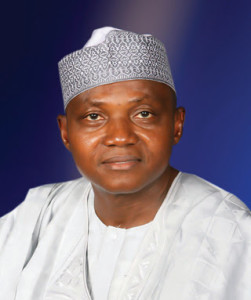
The presidency yesterday disclosed that one million poverty-stricken Nigerians will be given N5,000 every month for sustenance.
It also explained why the much anticipated change agenda is taking time to manifest, just as it firmly rejected the insinuations that poverty and lack are products of the change mantra, describing such claim as opposition criticism that erroneous and misplaced.
The above positions are contained in a statement issued by the senior special assistant to the president on media, Garba Shehu.
The presidential spokesman noted that the president understands the pain and the cries of the citizens of this country and that he is having sleepless nights on how to make their lives better.
Shehu said, “Contrary to assertions by a faction of the opposition Conference of Nigerian Political Parties (CNPP), the president’s energy and focus are on changing the life of Nigerians, with a view to making it better than he met it.
He then disclosed ongoing plans for change to include those for social investment.
“For example, one million poor and vulnerable Nigerians will soon receive monthly payments of N5,000 to allow them live decently,” he said, noting that the programme was designed to recognize the need for ordinary, poor Nigerians to also benefit from the resources of the country.
“President Buhari believes that the resources of our country should be spent also on the vast majority of our people who are poor and vulnerable, and not squandered by government officials or the elite,” he stated.
Shehu pointed out that this social investment plan is already provided for in the 2016 Budget and that the World Bank had begun conducting a social register on poor and vulnerable people in Nigeria in the four poorest communities in the four poorest local government areas.
He said; “About seven to eight states have been completed already. Now the Presidency is working with the World Bank and the Bill Gates Foundation on how to identify the people to be paid the N5,000 and how they will be paid.
“This is the first time that the federal government of this country will be spending this much on social welfare for poor, bearing in mind that the money will go directly to the beneficiaries.”
Another programme that is included in the 2016 budget and also targeted at the poor is the provision of soft loans to one million traders, market men, artisans and so on.
According to the presidential spokesman, “these are not the kind of loans that require collaterals that the people can’t afford or provide. No. The loans will come through the Bank of Industry, but this has also been included in the budget.
“In addition to all these, 500,000 unemployed graduates will be directly employed as volunteer teachers but paid by the FG to teach in their communities while they search for better jobs in their areas of expertise. 370,000 unemployed youths will also be trained in skills acquisition and paid while doing so.
“These are just some aspects of the change that Nigerians voted for, a change that is happening and which will soon be felt by Nigerians in every nook and cranny of our country. “
He remarked that Nigerians are noted for our inner strength and ability to triumph, and urged them to employ such character in overcoming the present hardships as better days are near at hand.
“These are just the darkest days before the dawn. The change Nigerians voted has indeed begun,” he said.
She also cleared the air on the feeling that the expected better days are delaying to come.
He said: “Change is a process. Change does not happen overnight. Change can be inconvenient. Change sometimes comes with pain. Over the past year, the government has been working night and day to deliver on its promise of change to Nigerians, and the painful process is still ongoing,” he said.
The presidency however asserted that the devastation of the economy was caused by the Boko Haram insurgency, corruption and the lack of planning by the past administrations, adding that the difficulties of the moment should not be blamed on the Change Agenda of the Muhammadu Buhari administration.
“This is work in progress. As life gradually returns to normal in much of the country and the northeast in particular, agriculture will resume and traders from neighbouring African countries will once again feel safe to do business with us – yet another boost for our economy.”
He also disclosed that President Buhari had ordered the release of 10,000 tons of grains from the national strategic grains reserves for national distribution to counter food price increases and the intolerably high exploitation of common people by the trader class.
According to him, the president has also directed the minister of agriculture to ensure that all the able-bodied men and women in IDP camps be assisted to return to farming immediately.
Shehu’s assertions came on the heels of calls for government measures to ease the hardship associated with food inflation.
He said, “But it is only when we appreciate where we are coming that we will grasp the full meaning and essence of what the ongoing journey entails.
“It is estimated, for instance, that three northeast states of Nigeria alone have so far lost about three trillion Naira ($9bn) to the Boko Haram insurgency. The previous administration at the centre said federal government’s losses amounted to about $18 billion.
“It would have been a miracle for our country’s economy to not feel the effects of this. And, in addition to the thousands of lives lost to the insurgency, thousands have also lost their means of livelihood. The northeast region of Nigeria is a mostly agrarian society, which means Nigeria has lost billions of naira in agricultural produce.
“Many communities, which have had their yearly planting and harvesting cycle disrupted by Boko Haram attacks or occupation, are yet to return to their farms. In many of these communities, there has not been planting and consequent harvest for between two to five years.
“At the time the Buhari government came to power, about N600 billion was owed to fuel marketers in subsidy payments. Strategic fuel reserves were depleted and local refineries were not functioning.”
According to him, one of the president’s first steps was to pay off the marketers, leaving an outstanding of about N150 billion which is captured in the 2016 budget.
He mentioned other ongoing efforts to turn things around for the masses: “The Port Harcourt and Kaduna refineries are being brought back to life. In a matter of time, Nigeria will resume refining its own fuel rather than depending on imports. As part of the permanent solution of recurring cycle of petroleum products shortages, government is working on a plan to ensure that some of the newly-licensed independent refineries start coming on stream from 2018.
“Government is also turning its attention to the sabotage of the oil and gas infrastructure that has taken so much away from the generation and distribution of electricity.”
Source: Leadership
celebrity radar - gossips
Another Feather for Nollywood Icon Fidelis Duker
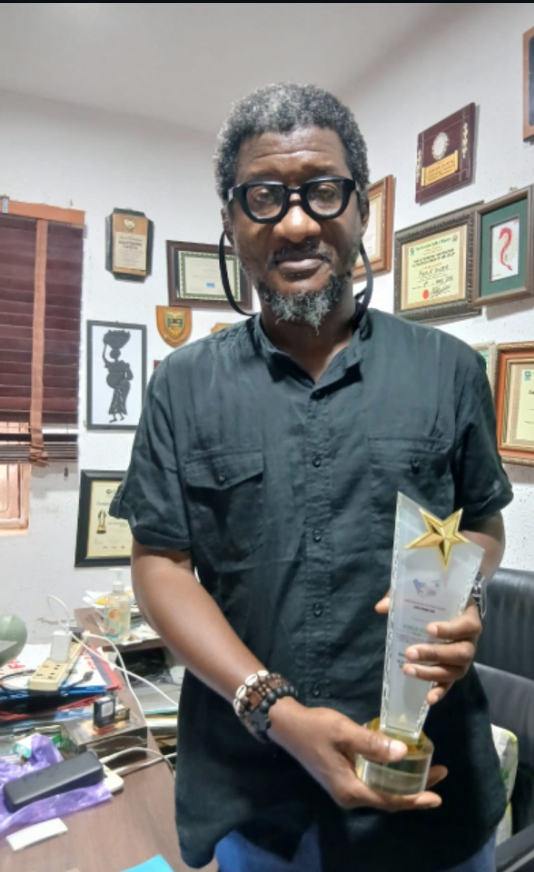
**Another Feather for Nollywood Icon Fidelis Duker
*Lagos, Nigeria* — In a remarkable celebration of artistic achievement, renowned Nollywood figure Fidelis Duker received yet another prestigious accolade last weekend, solidifying his role as a key player in the growth of the Nigerian and African film industries. The award was presented in a ceremony held at Duker’s Lagos office by esteemed film and theatre director, Mr. Alex Eyengho, founder of the Warri International Film Festival, alongside Marketing and Strategy Director, Mrs. Matel Eyengho.
The recent recognition builds upon Duker’s previous achievement at last year’s ECOFEST in Dakar, where he was honored with a Lifetime Achievement Award. This latest accolade is a testament to his unwavering dedication and substantial contributions to the cinematic landscape.
“I am truly humbled by this recognition,” Duker expressed during the event. In his speech, Alex Eyengho lauded Duker’s pioneering efforts in establishing significant film festivals in Nigeria, particularly the Abuja International Film Festival, which has played a vital role in promoting local talent and storytelling.
Eyengho emphasized, “Fidelis has not only paved the way for emerging filmmakers but has also helped elevate Nigerian cinema on the global stage. His creative vision and commitment inspire all of us in the industry.”
As Duker reflects on this honor, he acknowledges the importance of teamwork and collaboration in achieving success. “This acknowledgment reaffirms to my team and me that our work is being observed, and it motivates us to continue contributing to the development of our sector,” he stated.
With numerous projects on the horizon, Duker remains a relentless advocate for the growth and recognition of African cinema. His latest recognition is yet another testament to the vibrant and evolving landscape of Nollywood, as industry leaders like him continue to inspire future generations.
As the film industry anticipates the next phase of development, Duker’s continued influence signals a promising future for filmmakers in Nigeria and across the continent.
celebrity radar - gossips
E‑Money’s Grand Gesture: A Closer Look at the SUV Gift to Chinedu “Aki” Ikedieze

E‑Money’s Grand Gesture: A Closer Look at the SUV Gift to Chinedu “Aki” Ikedieze
By George Omagbemi Sylvester | Published by SaharaWeeklyNG
“Public Generosity, Celebrity Loyalty and the Symbolism of Wealth in Nigeria’s Entertainment Elite.”
On Tuesday, February 17, 2026, Nigerian billionaire and entrepreneur Emeka Okonkwo, widely known as E‑Money, once again captured national attention with a lavish and highly publicised act of generosity, gifting a brand‑new 2024/2025 Ford SUV to veteran Nollywood actor Chinedu Ikedieze, affectionately called Aki, during his high‑profile birthday celebration.
The event, held in Lagos amidst a constellation of entertainers, business figures and socialites, was itself part of an annual tradition in which E‑Money marks his birthday (on February 18) with large‑scale giveaways and spectacular shows of material philanthropy. This year, he announced the gift of over 30 cars to friends, staff and family, a gesture that quickly went viral as videos and images circulated across social media platforms.
In the case of Ikedieze, E‑Money’s gift appeared to be deeply personal. During the festivities, E‑Money stood beside his elder brother, Grammy‑nominated musician KCee and recounted how Ikedieze stood by him at his 2007 wedding. The billionaire explained that the SUV was a “token of appreciation” for the enduring support the actor had shown over the years which is a narrative that blends friendship with public celebration.
Ikedieze, a Nollywood staple with a career spanning more than two decades and over 150 film credits, including the iconic Aki na Ukwa franchise, visibly reacted with humble surprise as he received the vehicle, bowing his head in respect and gratitude. The actor later shared the moment on his Instagram account with a caption celebrating the gift, further fuelling online engagement around the event.
Beyond the spectacle, this incident underscores evolving dynamics in Nigerian celebrity culture and the intersection of wealth, influence and reciprocity. Sociologist Dr. Chinedum Uche of the University of Lagos, speaking on the broader implications of such high‑profile gifts, notes: “Philanthropy that is highly publicised can reinforce social bonds, but it also reflects a culture where generosity is intertwined with reputation economy; where giving becomes as much a social signal as it is an act of kindness.” The quote highlights how public acts of wealth transfer among elites serve layered social functions that extend beyond pure altruism.
Critics of such displays argue that ostentatious giveaways, particularly in a country with stark economic disparities, risk amplifying social envy and exacerbating perceptions of inequality. Economist Dr. Ifunanya Nwosu from the Lagos Business School observes: “In societies marked by economic stratification, celebrity largesse may inspire admiration, but it can also inadvertently highlight structural inequities; prompting questions about systemic investment in public welfare versus individual generosity.”
Still, supporters maintain that E‑Money’s annual tradition (which has in past years included cash gifts to his brother KCee, comedians and even domestic staff) reflects genuine gratitude and a commitment to uplifting his immediate circle, albeit within the private sphere.
For Ikedieze, the SUV stands both as a heartfelt gesture from a longtime friend and a public affirmation of their enduring relationship. As the video of the moment continues to circulate, the broader narrative has ignited discussions about the role of private wealth in public life, celebrity culture and how acts of giving are interpreted in contemporary Nigerian society.
In a landscape where influence and generosity often play out in equal measure on public stages, E‑Money’s gift to Aki is more than a headline, it is a flashpoint in ongoing debates about wealth, friendship and visibility in Nigeria’s entertainment and entrepreneurial ecosystem.
celebrity radar - gossips
Spiritual Reality: Wicked People Are Possessed by Wicked Spirits — Dr. Christian Okafor
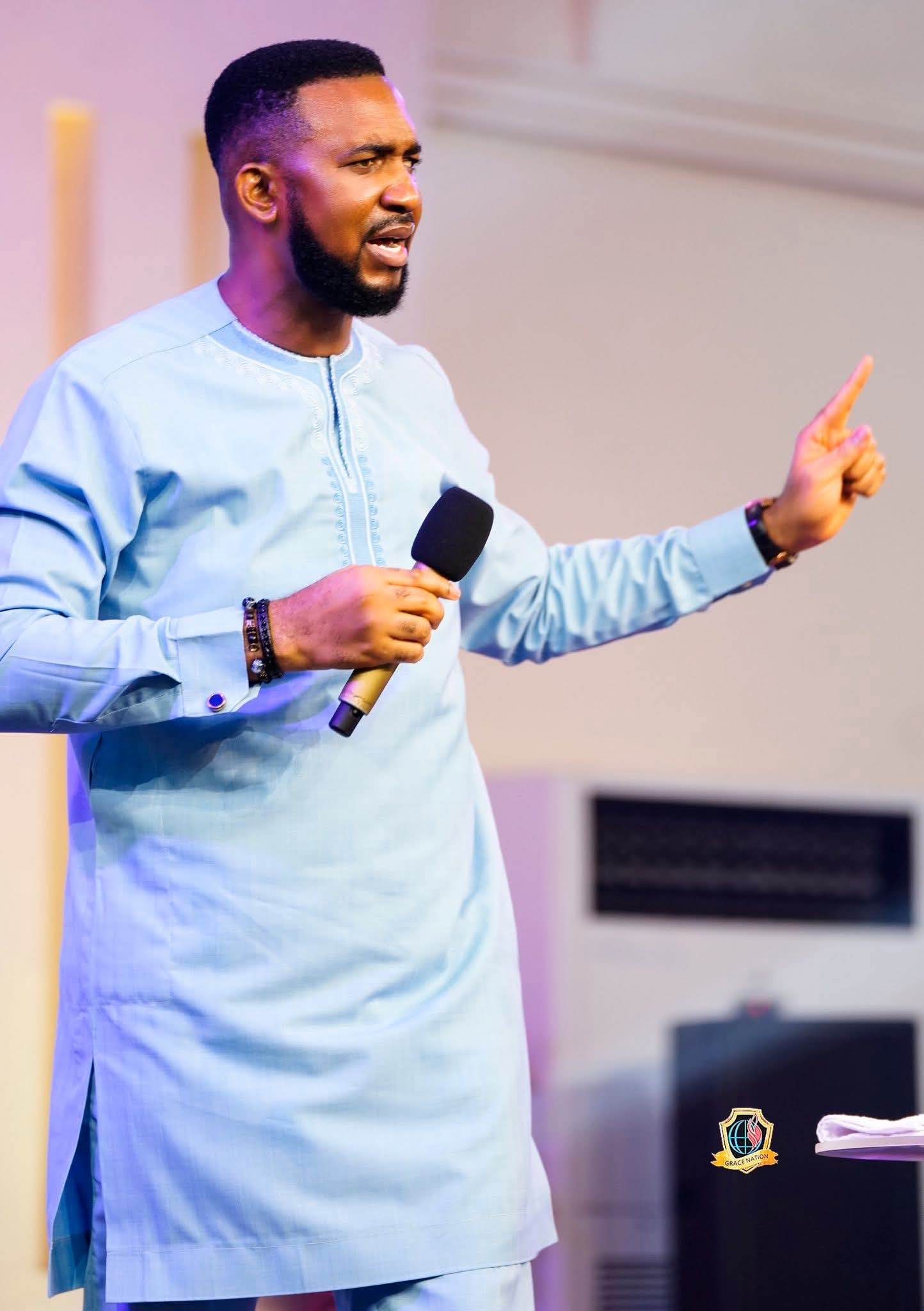
Spiritual Reality: Wicked People Are
Possessed by Wicked Spirits — Dr. Christian Okafor
…..“You don’t need to offend them before they attack you.”
…..“Your only true help comes from God.”
Demons are strategic and calculating. They detect threats quickly and position themselves to resist any power that may expose or overpower them.
According to the Generational Prophet and Senior Pastor of Grace Nation Global, Christian Okafor, spiritual intelligence operates both in light and in darkness—and believers must understand this reality.
Dr. Okafor delivered this message on Thursday, February 19, 2026, during the midweek Prophetic, Healing, Deliverance and Solutions Service (PHDS) held at the international headquarters of Grace Nation Worldwide in Ojodu Berger, Lagos, Nigeria.
The Operations of Demons
Teaching on the subject “Spiritual Reality” with the subtitle “Operations of Demons,” the Man of God explained that when demons possess individuals, their behavior changes. Such people may attack, bully, or resist those sent by God to help them, unknowingly rejecting divine assistance and prolonging their struggles.
“You don’t need to offend a demon before it attacks you,” he said. “What you carry is enough to provoke opposition. The greater your potential, the greater the battle.”
Dr. Okafor noted that many believers misinterpret battles as signs that God has abandoned them. However, he explained that some battles are permitted for growth, training, and divine glorification.
According to him, God may allow certain confrontations so that believers understand spiritual warfare and emerge stronger.
“Some battles are necessary,” he emphasized. “They push you into your turning point.”
He further stated that God does not respond to lies, blackmail, or bullying. He responds to His Word. Therefore, opposition is not proof of God’s absence, but often evidence of destiny at work.
The Weapon Against Demonic Attacks
Addressing solutions, Dr. Okafor described prayer as the strongest weapon against satanic operations.
“Prayer is the license that invites God into your battles,” he declared. “God does not intrude—He responds to invitation.”
According to the Apostle of Altars, understanding the principles and discipline of prayer enables believers to receive divine strategies for overcoming demonic resistance. Without prayer, he warned, spiritual help cannot be activated.
“You cannot receive help without God,” he concluded. “And you cannot engage God without prayer.”
Manifestations at the Service
The midweek gathering was marked by a strong move of the Spirit, with testimonies of deliverance, miracles, restoration, and solutions to various challenges presented before God. Several individuals reportedly committed their lives to Christ during the service.
-

 celebrity radar - gossips6 months ago
celebrity radar - gossips6 months agoWhy Babangida’s Hilltop Home Became Nigeria’s Political “Mecca”
-

 society6 months ago
society6 months agoPower is a Loan, Not a Possession: The Sacred Duty of Planting People
-

 society5 months ago
society5 months agoReligion: Africa’s Oldest Weapon of Enslavement and the Forgotten Truth
-

 news6 months ago
news6 months agoTHE APPOINTMENT OF WASIU AYINDE BY THE FEDERAL GOVERNMENT AS AN AMBASSADOR SOUNDS EMBARRASSING




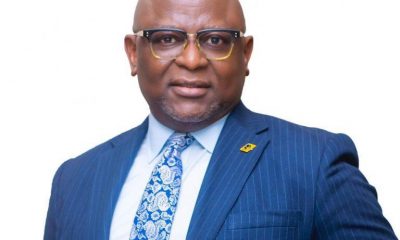





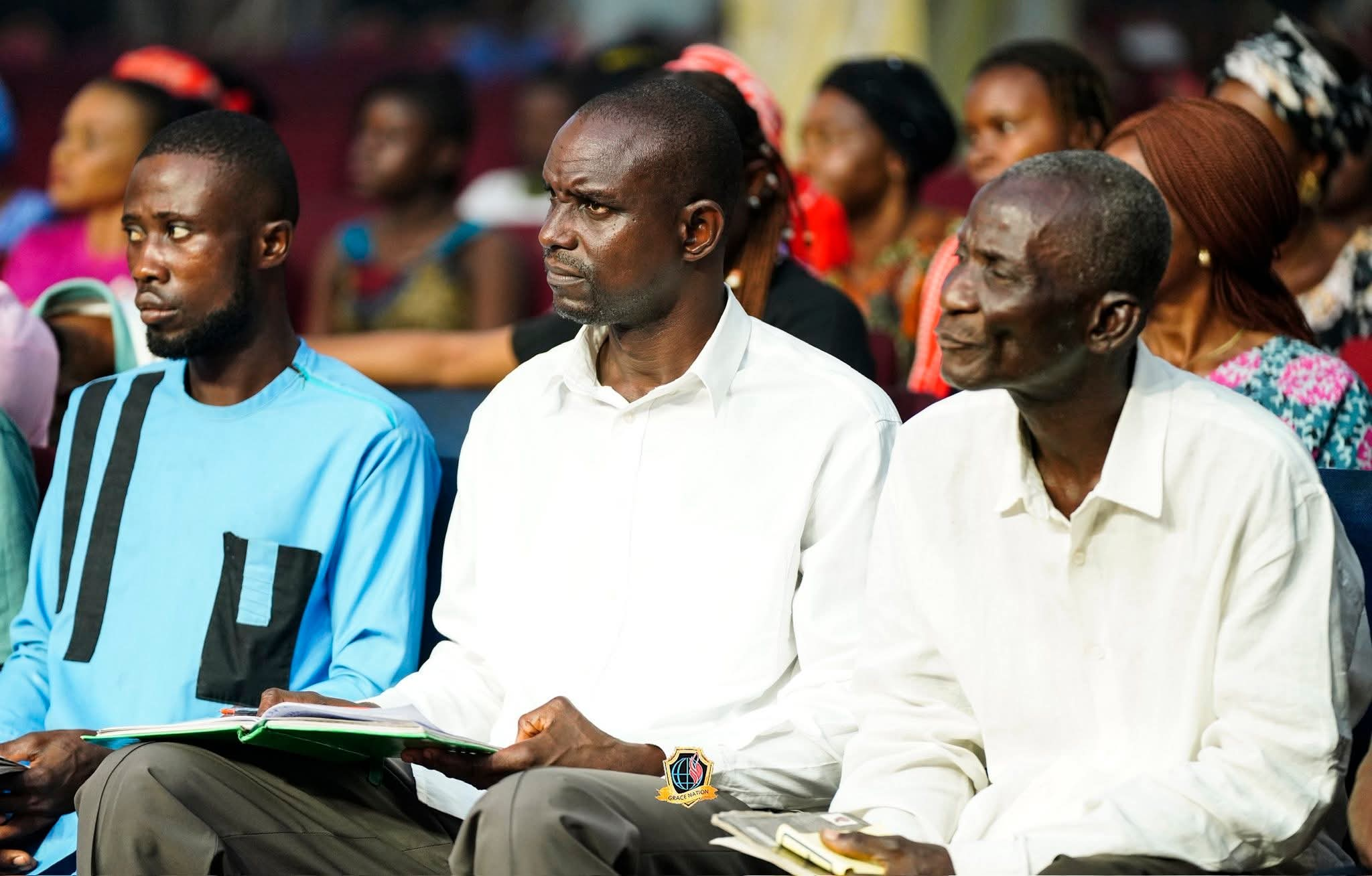

You must be logged in to post a comment Login